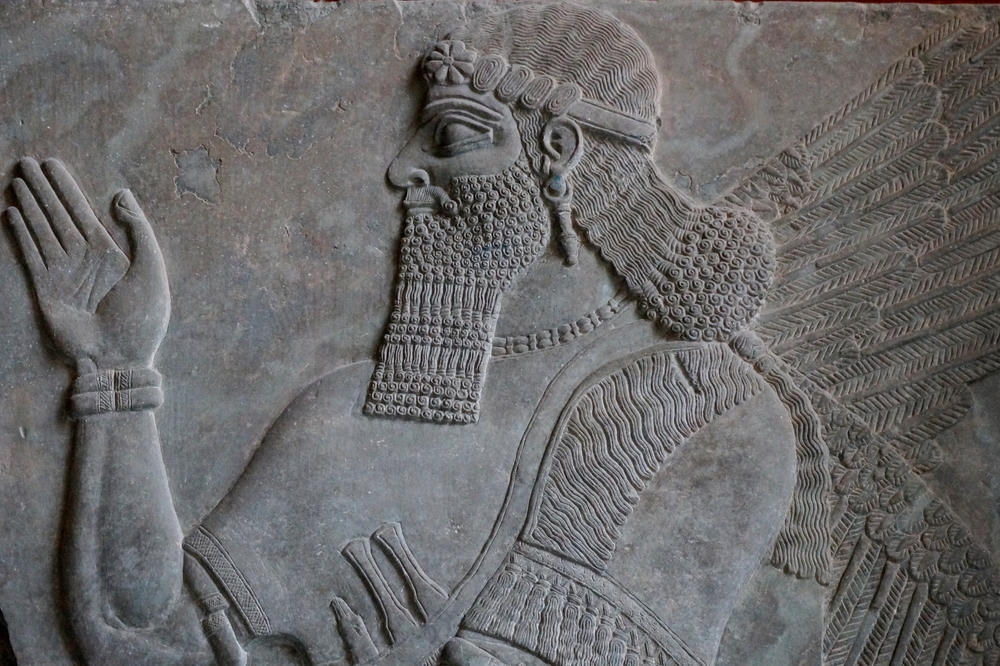
And in the second year of the reign of Nebuchadnezzar Nebuchadnezzar dreamed dreams, wherewith his spirit was troubled, and his sleep brake from him. (Daniel 2:1)
Nebuchadnezzar was the troubler of Judah, in the sense that God used him to mete out judgment upon Judah for her great wickedness. Now, however, God troubled Nebuchadnezzar. He dreamed a dream that seemed so confusing and disturbing that it troubled his spirit, and he couldn’t sleep because of it.
Then the king commanded to call the magicians, and the astrologers, and the sorcerers, and the Chaldeans, for to shew the king his dreams. So they came and stood before the king. And the king said unto them, I have dreamed a dream, and my spirit was troubled to know the dream. (2:2-3)
In those days, men put great stock in dreams and what they might mean. Often, God would speak to His prophets in dreams and visions. A godless king such as Nebuchadnezzar would surround himself with wisemen, magicians, astrologers, etc. to tell him the interpretations of his dreams.
So, naturally, when the king woke from this dream troubled by it, he called these men to come before him and tell him what the dream meant. Before they could do so, they needed to know what the king saw in his dream.
Then spake the Chaldeans to the king in Syriack, O king, live for ever: tell thy servants the dream, and we will shew the interpretation. (2:4)
These servants of the king certainly did not ask anything out of the ordinary. How could they tell the king what the dream meant if they didn’t know what the dream was? However, Nebuchadnezzar revealed another problem: He couldn’t remember the dream.
The king answered and said to the Chaldeans, The thing is gone from me: if ye will not make known unto me the dream, with the interpretation thereof, ye shall be cut in pieces, and your houses shall be made a dunghill. But if ye shew the dream, and the interpretation thereof, ye shall receive of me gifts and rewards and great honour: therefore shew me the dream, and the interpretation thereof. (2:5-6)
Can you imagine how those men felt when the king told them that? Likely, they were shocked that the king expected them to know his dream. Certainly, they were terrified of what the king would do to them if they failed to meet his demands.
Now, before we judge Nebuchadnezzar too harshly for his horrible threats, let us consider who these men were. They all claimed to be magicians, sorcerers, and the like. They were already very wealthy and well cared for because of their positions. If they had the powers they claimed to have, was it wrong for Nebuchadnezzar to expect them to prove it?
The wisemen may have simply thought that the king was testing them to see how they would respond. They tried again to get the king to tell them his dream:
They answered again and said, Let the king tell his servants the dream, and we will shew the interpretation of it. The king answered and said, I know of certainty that ye would gain the time, because ye see the thing is gone from me. (2:7-8)
The king accused them of trying to buy time to prolong their lives. The king’s logic was very sound in this situation. We easily see this from what verse 9 says:
But if ye will not make known unto me the dream, there is but one decree for you: for ye have prepared lying and corrupt words to speak before me, till the time be changed: therefore tell me the dream, and I shall know that ye can shew me the interpretation thereof. (2:9)
Nebuchadnezzar reasoned that if these men were unable even to tell him the dream, then they were unable to give him the correct interpretation of it. He clearly had doubts about these men and the powers they claimed to have.
Now the wisemen are not only shocked and terrified, but they are also completely bewildered.
The Chaldeans answered before the king, and said, There is not a man upon the earth that can shew the king’s matter: therefore there is no king, lord, nor ruler, that asked such things at any magician, or astrologer, or Chaldean. And it is a rare thing that the king requireth, and there is none other that can shew it before the king, except the gods, whose dwelling is not with flesh. (2:10-11)
These men claimed that what the king asked was impossible. No one on earth could do what he required unless it was a god. It’s safe to say that the king did not like this response.
For this cause the king was angry and very furious, and commanded to destroy all the wise men of Babylon. (2:12)
It must have been a terrible thing to be in the presence of the king at that moment. He was absolutely furious that the wisemen couldn’t do as he asked. So, he commanded his guards to destroy them. Likely, the soldiers killed those wisemen right then and there. The king would not be satisfied with that, however. He wanted to destroy all the wisemen in Babylon, including Daniel and his friends.
And the decree went forth that the wise men should be slain; and they sought Daniel and his fellows to be slain. (2:13)
This verse tells us that Daniel and “his fellows” (Hananiah, Mishael, and Azariah) were among the wisemen there in Babylon. However, they were not in the group that went before the king. The guards had to seek them out to carry out the king’s decree.
Then Daniel answered with counsel and wisdom to Arioch the captain of the king’s guard, which was gone forth to slay the wise men of Babylon: He answered and said to Arioch the king’s captain, Why is the decree so hasty from the king? Then Arioch made the thing known to Daniel. (2:14-15)
Daniel approached the captain of the guard and asked why the king was being so hasty in his judgment. Daniel sought to de-escalate the situation by reasoning with the captain. The captain explained why the king was so furious with the wisemen and why he wanted them destroyed.
Daniel’s favor with those around him put him in a position to make a request:
Then Daniel went in, and desired of the king that he would give him time, and that he would shew the king the interpretation. (2:16)
Daniel asked the king for time. If the king would do that for him, then Daniel would be able to tell the king his dream. The king granted his request.
